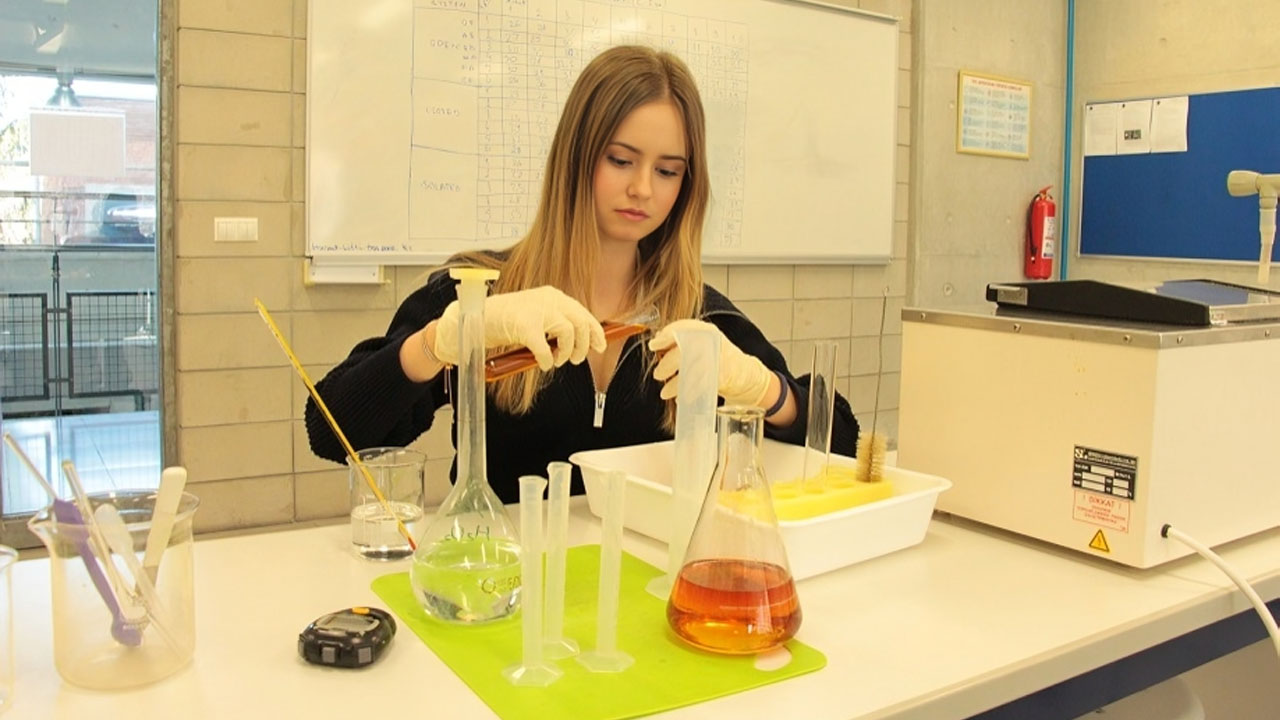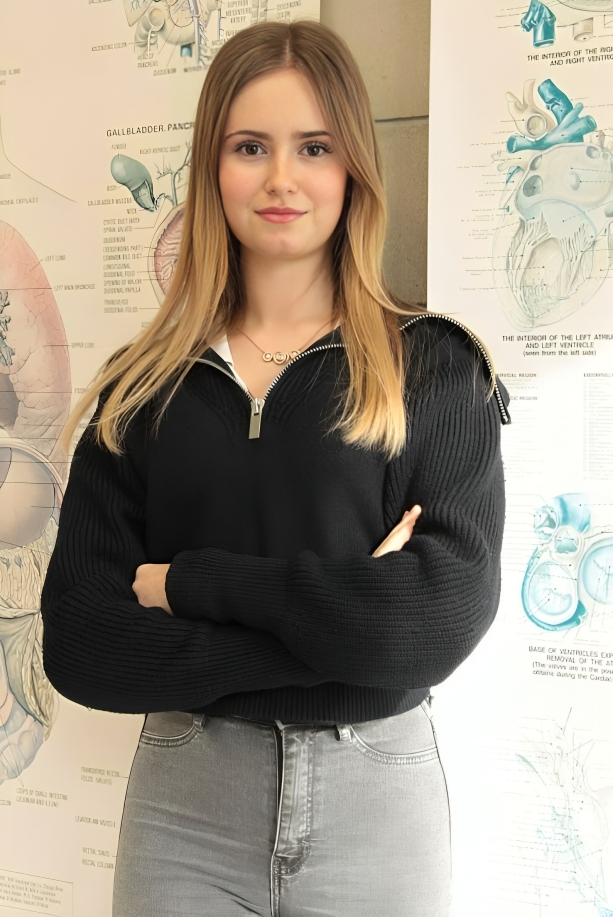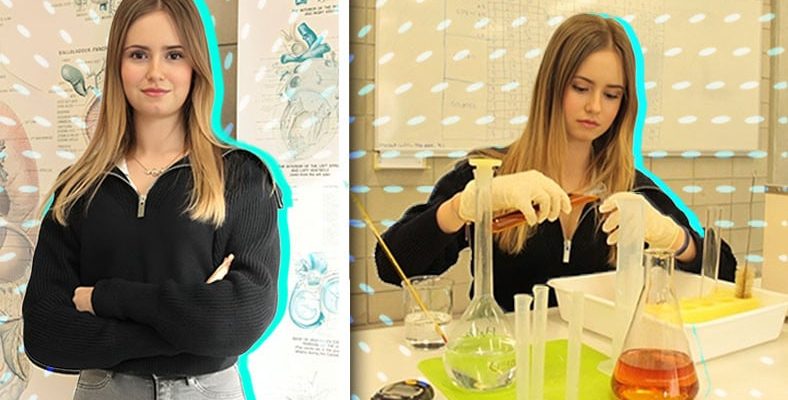Recently, a young high school senior named Simay Yüksel achieved great success and carried out an important study that will play a role in the early diagnosis of diseases such as Alzheimer’s and dementia.
17-year-old, 12th grade student at TED Ankara College Simay Yukselachieved great success and “An Epigenetics-Based Artificial Intelligence Model” He managed to patent his work and He became one of the few students in Turkey under the age of 18 who was entitled to receive a patent number.
Although research is being done in this area There is a lack of diagnosis and treatment of neurodegenerative diseases Stating that Yüksel achieved great success in order to find a solution to this problem, he carried out a study called “An Epigenetics-Based Artificial Intelligence Model”. This model, which Yüksel developed for the purpose of being used in the early diagnosis of neurodegenerative diseases, is used with the artificial intelligence system for diseases that do not have a definitive treatment. frontotemporal dementia Alzheimer’s, Parkinson’s, ALS, Huntington’s It will be used in the early diagnosis of diseases such as
As Webtekno team, we reached Simay Yüksel, who made our country proud with this success, and We forwarded our questions.
First of all, can you tell us a little about the work you have done?
The idea for the project emerged in the spring, and my two friends and I started developing our model in the summer. We prepared our project and first applied to the Turkish Patent and Trademark Office. We sent the document explaining our project with diagrams and diagrams to the institution in accordance with the application procedures and By the end of November 2023 also has international validity We obtained the patent number.
The idea of this project is based on the progress of artificial intelligence, “Can we use artificial intelligence in the early diagnosis of neurodegenerative diseases?” He started by asking the question. As young people wondering about the answer to this question, me and two of my friends developed an epigenetic-based artificial intelligence model as a team.
With this artificial intelligence model, we load the epigenetic bases of five neurodegenerative diseases, including frontotemporal dementia, Alzheimer’s, Parkinson’s, ALS, and Huntington’s diseases, into our model and, according to that epigenetic data, ““How susceptible is the patient to these diseases?” or “How likely is the risk?” We plan to obtain data that will answer questions such as.
In this way We aim to ensure early diagnosis and to initiate the necessary processes at an early point.
You stated that you wanted to be a scientist since your childhood. When and how did your passion for science first begin? Does it have a story?
Since I was little, wondering what is around me and trying to discover it I have become one. My interest in science started when I learned that science was the name of the way I could find answers to the questions I was looking for answers to.
As I learned this, when I was little I asked, “What do you want to be when you grow up?” to the question “I want to be a scientist!” I replied. They used to laugh at me back then, but I didn’t mind it. Especially in our home surprising facts from popular science magazines and television programs It fascinated me and caused my interest in science to grow.
Conducting experiments on my own at home, constantly asking the question “why” and trying to find the answer to this question further strengthened my passion for science. Now Using this passion, I work determinedly to make new discoveries in science and contribute to society.
You say that you are interested in neurodegenerative diseases and that you are working to improve yourself in this direction. Why are you particularly interested in neurodegenerative diseases?

Actually, I have been interested in both neurobiology and molecular biology since middle school. Since my childhood, I have been trying to understand human psychology and have been curious about it. Recently, neurodegenerative diseases have been my focus.
The main reason why my focus is on neurodegenerative diseases is, These diseases are a globally important medical problem. Although these diseases seem to affect only the elderly, many people, from seven to seventy, are actually affected by such diseases worldwide. The number of people suffering from Alzheimer’s alone is over 40 million.
Especially after seeing the continuing increase in the incidence of these neurodegenerative diseases, despite advances in medicine and technology. “How can I solve this problem?” I started to research the subject in more detail.
As a result of my research, I saw that; Although in this field Although research has increased, it is still insufficient to understand the diseases. and today there is no definitive treatment for these diseases. The fact that symptoms are not clearly observed in the early stages makes early diagnosis of these diseases difficult.
Using constantly developing artificial intelligence for the early diagnosis of neurodegenerative diseases is a very visionary approach. What was the most difficult moment while developing your work titled “An Epigenetics-Based Artificial Intelligence Model”? And how do you plan to improve your model in the future?
Frankly, the most difficult thing in this process was not developing the model, but developing it. the prejudices and underestimations we encountered. We developed this project as three girls of the same age, and we encountered many prejudices due to the fact that there were no men in the team and that we were still very young.
“Who cannot get a patent number, will you? And at this age!” And “Do you think these things are that easy?” We faced many derogatory comments throughout the process.
Fortunately, this did not prevent us from working on the model to the end and eventually obtaining the official patent number. At this point, I think this success is also important in terms of breaking the usual patterns in society.
whose model has the same purpose as ours. We plan to grow it by collaborating with authorized institutions and companies. We are open to evaluating any offer we receive as a team.
You will take the university exam this year. Which field do you plan to specialize in?
Molecular Biology I am thinking of specializing in my field. As a university I aim abroad. I will also take the YKS exam, but primarily I am preparing to go abroad. My application process to universities in the USA continues.
More in my field in the future I aim for research-oriented progress. I want to focus on R&D and project development, both in terms of laboratory studies and entrepreneurship. My main goal is to contribute to science and humanity.. I aim to achieve this by finding innovative solutions to today’s problems in the light of science and making the future more sustainable.
You became one of the few students under the age of 18 who were eligible to receive a patent number. What advice would you give to people who want to achieve success like you by taking you as an example?

Every person has a dream that they want to realize in their life. This is the only way to make these dreams come true. To take action, to strive, not to give up despite difficulties.
It may sound like a classic saying. I used to think the same way, and I lost my belief that taking action to realize my dreams would be effective in the face of the disappointments I saw in the country. But then I realized that It is we who determine our position, and change begins with individuals sincerely believing in change. I say this as someone who has faced great prejudices due to both age and gender and has been tried to put obstacles in his way many times.
There are Turkish young people who are so bright and have such great potential. The only thing that can stop them is if they let their hopes be crushed. If I could give just one piece of advice, it would be to always dream big and don’t be afraid of it. Believe in the potential within you and do not hesitate to take steps and fail to realize your dreams.
Simay Yüksel, who makes us proud with her work We have no doubt that he will make us proud with the work he will do in the future.
Let us end this content here by thanking dear Simay Yüksel for agreeing to meet with us. We hope to witness many more successes in the future, Simay!
RELATED NEWS
Dementia, also known as ‘dementia’, can be diagnosed early
RELATED NEWS
